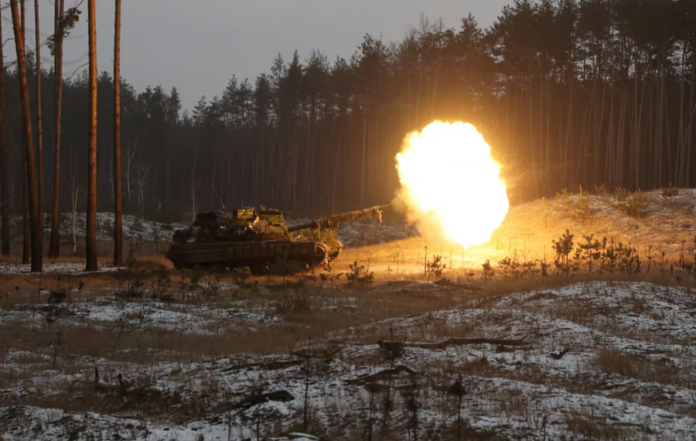NATO was in cleanup mode Wednesday after a senior official sparked a dust-up over his suggestion that Ukraine could cede territory to Russia in exchange for NATO membership, according to Politico.
The controversy started Tuesday when Stian Jenssen, director of NATO Secretary-General Jens Stoltenberg’s private office, said one solution to the ongoing war could be for Ukraine to offer Russia land in return for a spot in the NATO military alliance.
The comments, made during a panel debate in southern Norway and picked up by the Norwegian newspaper VG, were striking as Western allies have long emphasized the importance of Ukraine’s territorial integrity and said Kyiv should decide when and how to negotiate with Moscow.
Within hours, Ukraine was expressing outrage, diplomats were doing double takes and Moscow was putting it all through the Kremlin’s spin machine.
“Trading territory for a NATO umbrella? It is ridiculous,” tweeted Mykhailo Podolyak, an adviser to Ukrainian President Volodymyr Zelenskyy’s office.
Oleg Nikolenko, a spokesperson for the Ukrainian foreign ministry, called any discussion of swapping land for NATO “completely unacceptable.”
“Consciously or unconsciously, the involvement of NATO officials in shaping the narrative about the possibility of the withdrawal of Ukraine from their territories plays on the hand of Russia,” he wrote in a Facebook post.
Behind the scenes, Ukrainian officials appeared concerned.
“These comments prove that our worries have ground, that there are some discussions to use NATO membership as a bargaining chip in negotiations with Russia,” said a Ukrainian official, who was granted anonymity to discuss Kyiv’s internal thinking.
In Russia, officials used it to renew their insistence that Ukraine must never join NATO.
“This is a bogus story that has certain political goals,” said Russian foreign ministry spokesperson Maria Zakharova. Dmitry Medvedev, the deputy chairman of Russia’s Security Council, said that to join NATO, Ukraine “would have to give up even Kyiv itself.”
Within the Western defensive alliance, numerous diplomats were taken aback at the episode. Jenssen is a senior figure who has worked at NATO for over a decade and rarely speaks in public.
The comment came as a “surprise” to NATO countries’ representatives, said a senior diplomat from Western Europe, adding that “such a trade-off was never discussed at the council by the allies.”
On Wednesday, Jenssen appeared to walk back his comments.
In an interview with VG, he said the previous day’s statement was part of a broader discussion. “I shouldn’t have said it that way,” he said. “It was a mistake.”
“It is completely Ukraine’s independent right to decide,” Jenssen said, adding: “I think the most important thing now is that we support the Ukrainians.”
Still, several diplomats lamented that the 24-hour period had been damaging. Even if the idea of making land concessions has long lingered as a negotiating possibility, officials have been careful not to say that publicly.
“It is of course a major mistake which is surprising for such an experienced professional,” said a senior Central European diplomat, who like others was granted anonymity to discuss sensitive internal dynamics. “He does not have a mandate for it, and voicing it certainly does not help Ukraine.”
Another senior Central European diplomat added: “It is unfortunate … It is not in line with the will of 31 allies, nor is it some joint attempt to test the international response.”
A Western European diplomat, however, said they “can understand the thinking but it’s not something that needs to be on the table at this point.”
Before the interview’s publication, a spokesperson for NATO also underscored that the alliance’s position on Ukraine’s future has remained the same.
“NATO’s position is clear and it has not changed. We fully support Ukraine’s sovereignty and territorial integrity, as NATO leaders reiterated at the Vilnius summit in July,” the spokesperson said. “It is up to Ukraine to decide when and on what terms to achieve peace, and clearly there is a need for security arrangements to ensure that there is no repeat of the war.”


